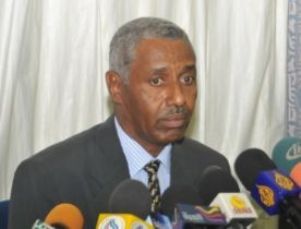Darfur’s Rizeigat tribe mediates between conflicting clans of Misseriya tribe
July 18, 2014 (KHARTOUM) – A delegation from the Darfurian Rizeigat tribe led by the former governor of East Darfur state, Abdel-Hamid Musa Kasha, is mediating between two conflicting clans of the Misseriya tribe.

Earlier this month, the Misseriya tribe disclosed that 150 of its members were killed and another 100 injured in fighting that broke out between two of its clans, Awlad Omran and al-Zyoud , in West Kordofan state.
Mohammad Omar al-Ansari, a leading Misseriya figure, told the government sponsored Sudanese Media Center (SMC) website that clashes between the two clans lasted a full day because of a dispute over land near the oilfields.
The two clans reached a truce last week following a mediation effort led by the reconciliation and peaceful coexistence mechanism in West Kordofan state.
The member of the mediation team and MP, Abdallah Gama’a, disclosed that the delegation which includes parliament members, former ministers, and leaders of traditional administrations will travel to West Kordofan stae on Monday.
He said the delegation will visit Al-Foula town before heading to the conflict areas in Al-Dabab and Babanosa to hold a meeting with the conflicting parties in an attempt to ease tensions and prevent escalation.
Gama’a stressed the mediation of Rizeigat tribe to end conflict between Misseriya clans enjoys support of the second vice president, Hassabo Mohamed Abdel-Rahman, and the governor of West Kordofan state, Ahmed Khamees, besides the two conflicting clans.
He pointed to the danger of renewed tribal conflicts among members of the same tribe, calling for the need to find a radical solution for the problem.
Gama’a also noted that the conflict harms the whole pastoral zone and threatens stability, affirming the need to get rid of those who benefit from fueling these conflicts.
The Sudanese government has recently stepped up efforts to meet pledges made by president Omer Hassan Al-Bashir to end tribal conflicts in the country by the end of the year.
A reconciliation conference between Hamar and Ma’alia tribes will be held on July 23 in Al Foula town in West Kordofan state. The presidency also called for making arrangements to hold a similar conference between Ma’alia and Rizeigat tribes on August 10.
Last year, Bashir warned against tribal strife in some areas of the country, noting the country is facing challenges that need the cooperation of all of its people.
“The tribal conflicts in a number of Sudan’s areas constitute the biggest threat to the country,” Bashir said when addressing a meeting of the Shura (consultative) Council of the ruling National Congress Party (NCP).
Several officials in Darfur including the head of the regional authority, Tijani El-Sissi, also said that tribal violence is among the biggest threats to ongoing efforts to implement a peace document signed by two former rebel groups in the region.
(ST)
